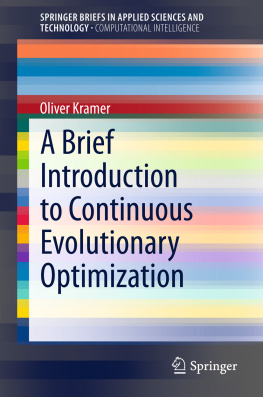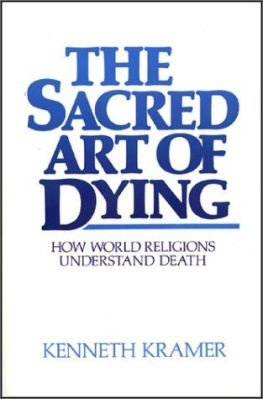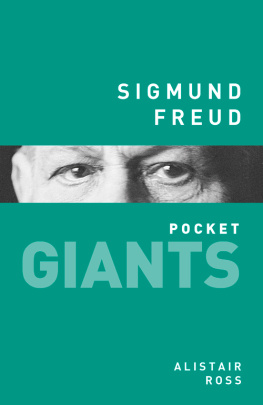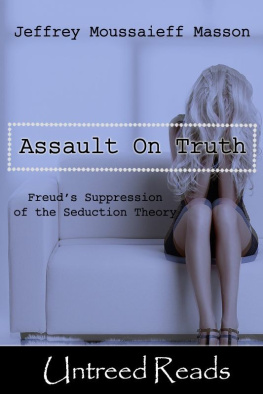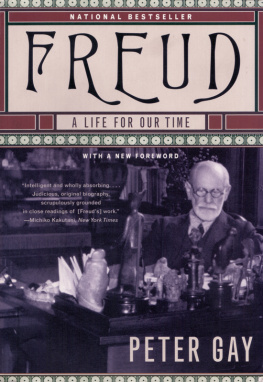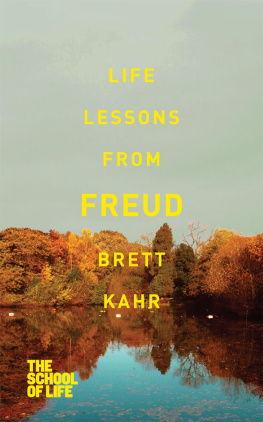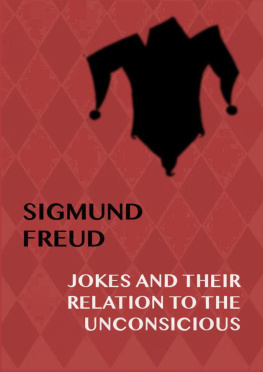Peter D. Kramer
I N 1922, A DISTRAUGHT husband framed a challenge for Sigmund Freud: Great Doctor, are you savant or charlatan? Though he had interviewed her only briefly, Freud had advised the mans wife to leave him and marry her former analyst, a patient and protg of Freuds. The injured party, Abraham Bijur, was a person of means. He intended to make his grievance public in the New York Times . But Bijur died just after the letter was composed. Nearly seven decades would pass before its contents were shared with the Times s readers.
For most of those years, Freud was very much Bijurs savanta towering intellectual figure. He was, to begin with, the greatest psychiatrist of the age. He appeared to possess special powers of observation that allowed him to turn his work with patients into innovative science. Using methods he had himself developed, Freud had discovered and mapped the unconscious. He had named the components of the mind and explored the principles by which they operated. He had charted the sequence of human psychological growth, from infancy to mature adulthood. He had identified the causes of most mental illnesses and invented a method for treating them.
Freud was more than the parfit physician. He was also a wise man, whose account of the diseased mind had profound implications for our understanding of the human condition. Beneath apparent rationality, Freud had discerned dark impulses and contradictory yearnings that coalesced into predictable patterns he called complexes. He had demonstrated that, in the culture and in the lives of individuals, hidden symbols abound; our customs and behaviors simultaneously hide and reveal sexual and aggressive drives incompatible with the requirements of civilized society. Freuds theories seemed to update ancient philosophies, casting our lives as tragic dramas of a distinctively modern sort. It was as if, before Freud, we had never known ourselves.
Then, a quarter of a century ago, Freuds status began to change. Forgotten documents came to light. They showed that Freud had regularly misrepresented the development of his ideas and the details of his own life story. The new understanding of Freuds clinical work was particularly troubling. He had altered fact to fit theory, conducted therapies in ways that bore scant relationship to his precepts, and claimed success in treatments that had failed. How damaging were these findings, in light of Freuds contributions? The answer to that question might depend in part on the status of Freuds ideas, which were themselves falling from favor. Freuds supporters and his detractors took opposing positions, in the controversy known as the Freud Wars. Bijurs challenge moved to center stage: savant or charlatan?
The case that so pained Abraham Bijur contributed to the reassessment. Bijur, a financier, was married to a younger woman, Angelika, who was wealthy in her own right. Angelika Bijur had entered into a sexual relationship with her former analyst, the prominent American psychiatrist Horace Frink.
Frink was married, with two young children. He had long been prone to mood disorder, and in the course of the affair, he became emotionally disturbed. Uncertain how to proceed, Frink traveled to Vienna at Angelika Bijurs expense to undertake a course of analysis with Freud.
Frink had a difficult history. When he was eight, his father suffered a business failure. The father moved in search of work, taking his wife with him and leaving Frink in the care of grandparents. When Frink was fifteen, his mother died of tuberculosis. In his mid-twenties, Frink succumbed to depression. Despite psychoanalytic treatment, he became depressed again in his thirties. Frink understood himself to be subject to mood swings.
In 1921, at age thirty-eight, Frink consulted Freud. Frink was in an agitated, sometimes euphoric state. He was waking at three in the morning. He described himself as more talkative and full of fun than ever before in my life, though he also experienced a sense of unreality. In retrospectand in the eyes of the doctor who took over after Freud withdrew from the caseFrink was entering the manic phase of a long-established manic-depressive disorder.
In the first hours of treatment, Freud leaped to a formulation grounded in one of the less well-developed aspects of his own theory: Freud decided that Frink had latent homosexual tendencies. Apparently it was Frinks admiring posture in the consulting room and his indecisiveness in private life that led Freud to this conclusion. Frink resisted this train of thought. Freud was adamant. Any delay in pursuing vigorous heterosexual satisfaction would endanger Frinks psychic health.
In a matter of weeks, Freud had Frink insist that Angelika Bijur join them. In a letter, she later reported: When I saw Freud, he advised my getting a divorce because of my own incomplete existenceand because if I threw Dr. F. over now he would never again try to come back to normality and probably develop into a homosexual though in a highly disguised way.
This forceful interventioncure through action rather than insightwas at odds with the principles of psychoanalysis, and Freud moved to keep his role hidden. In a letter to Frink, Freud noted that he had cautioned Angelika Bijur not to repeat to foreign people I had advised her to marry you on the threat of a nervous breakdown. It gives them a false idea of the kind of advice that is compatible with analysis and is very likely to be used against analysis.
Neither Frink nor Angelika Bijur was fully persuaded. Still, at Freuds suggestion, the lovers met with Abraham Bijur in Paris to break the bad news. Bijur was outraged. Addressing Freud in writing, Bijur asked: How can you give a judgment that ruins a mans home and happiness, without at least knowing the victim so as to see if he is worthy of the punishment, or if through him a better solution cannot be found? Shortly after, Bijur died of cancer.
Doris Frink appears to have been a concerned and compliant wife. To her husband in Vienna, she wrote: I feel that you have had great unhappiness and I am anxious that you should have just as great happiness. I cannot feel that it lies where Freud thinks it does. Placated by a hundred-thousand-dollar inducement from her husbands mistress, Doris Frink headed to Reno for a divorce, writing loving letters along the way. She would die less than a year later, in 1923.
Meanwhile, Horace Frink became delusional, saying that Angelika Bijur looked queer, like a man, like a pig. Still Freud made the case for sexual fulfillment. In late 1922, Frink and Bijur married. Frinks condition worsened immediately. The marriage collapsed, and Frink became actively suicidal, requiring repeated hospitalization. The couple divorced in 1925.



